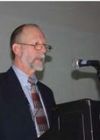LIVING WATER SMART IN THE COMOX VALLEY: “The City of Courtenay saw hosting the Learning Lunch Seminar Series as an exciting opportunity to further advance a regional team approach,” stated Kevin Lagan, Director of Operational Services (2008)

“The June 2008 release of Living Water Smart provided a timely provincial frame-of-reference for the Learning Lunch Series. The City collaborated with the CAVI team to explore a bottom-up approach that would inform implementation of Living Water Smart. Our goal was to demonstrate how we can all do business differently and thereby make green choices that create liveable communities and protect stream health,” stated Kevi Lagan.









